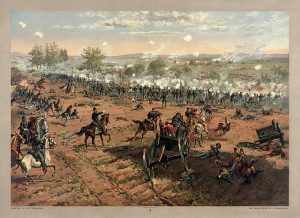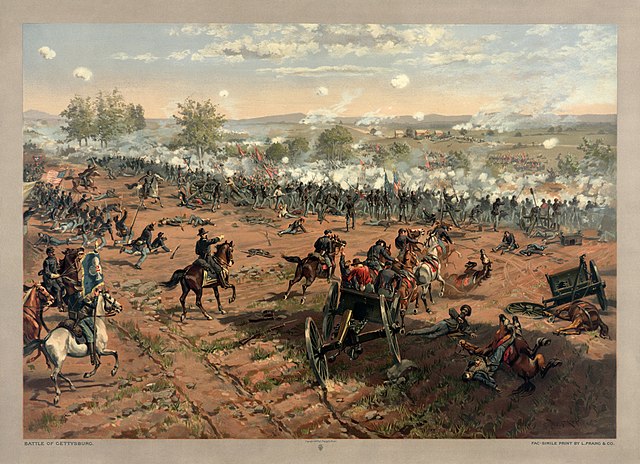
Concerning History is a self-edited blog. Our staff, insofar as you can call us that, is comprised of 6 twenty-somethings with a mix of undergraduate and graduate education. None of us are professional editors. While that does mean our content is sometimes a little less than polished, I would still take this arrangement over the one that most journalists have with their editors, where the latter often writes the headlines.
It shouldn’t be news that headlines are written to get you to read more. Newspapers have been baiting readers since long before the invention of clicks. The problem isn’t even restricted to journalism. I also know of historians whose editors have given their work a title that doesn’t line up with what the book is actually about and leaves them open to critiques that their book doesn’t accomplish what it claims on the cover.
But recently in the Washington Post, one caught my eye that I couldn’t resist picking at: “In America, Talk Turns to Something Unspoken for 150 Years: Civil War.”
Seriously?
First, the sweeping assumption that the idea of civil war has been unspoken since the 1860s is easily disproven by a simple database search. Take for instance The Independent’s 1886 profile of Samuel J. Tilden, which noted his “claims to the Presidency almost precipitated a second civil war.” It wasn’t just in the post-Reconstruction years that the danger of another conflict was on the minds of Americans. “The Second Civil War,” an article from 1934, warned against the growing severity of economic inequality between North and South (to be fair to the author, this title may also have been the editor’s fault). I’m sure if you look at the 1960s you’d see some civil war rhetoric then, too. None of this should come as a shock given the significance of the Civil War as a touchstone in American political culture. It’s an easy mistake to avoid.
More than being wrong, however, the title doesn’t capture what the article is about. I don’t know for sure, but my guess is that the editor wrote it rather than the author. A better title might be “Political Commentators Invoke Civil War Rhetoric amid Declining Faith in American Institutions.” Less catchy, but more apt. At least it doesn’t suggest that the average American’s daily conversations revolve around the next Fort Sumter.
I’m not saying that things can’t go from bad to worse. They can and, unfortunately, probably will. The article’s broader point is that there is a flagging confidence in American institutions. This is cause for serious concern, but not necessarily the build-up to war. We see our political divisions through the framework of our last civil war, but in reality civil conflict comes in a lot more variations: an insurgency, a constitutional crisis, or a struggle for control of the armed forces all seem more likely than nation-wide war. Experts on democratic systems are quoted towards the end of the article to discuss their take on American democracy, but I would be more interested in reading their full comments about the future of the country rather than soundbites dealing with hypotheticals. This is a complicated subject that deserves nuance.
And that brings us back to the problems of headlines that misrepresent the complexity or context of an issue. I don’t know enough about the publishing process to know what goes into titles, but I do think that editors should engage in a dialog with authors in the interests of finding a title that will accurately reflect the content and still be catchy enough to sell. The public deserves better than misleading headlines that stroke fears of civil war.
Sources:
Peter Molyneaux, “The Second Civil War: The Cotton South Against the North,” Forum and Century, August 1934.
“Samuel J. Tilden,” The Independent, August 12, 1886.
